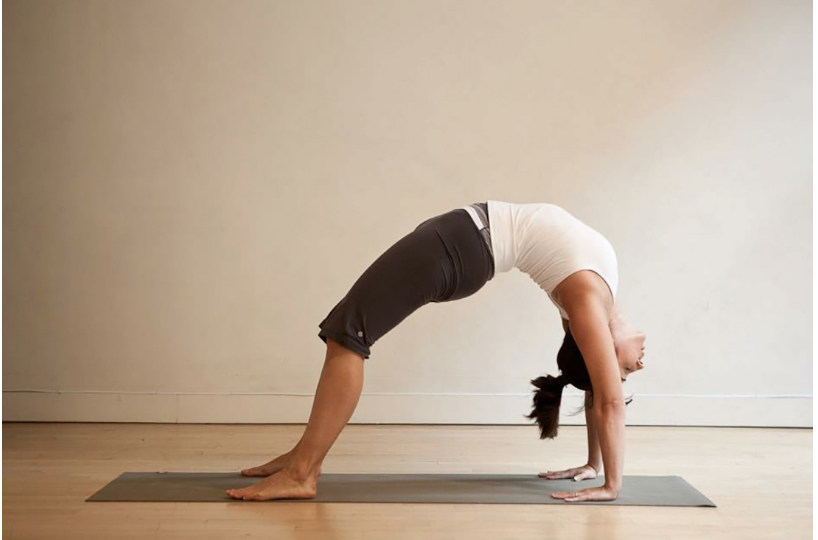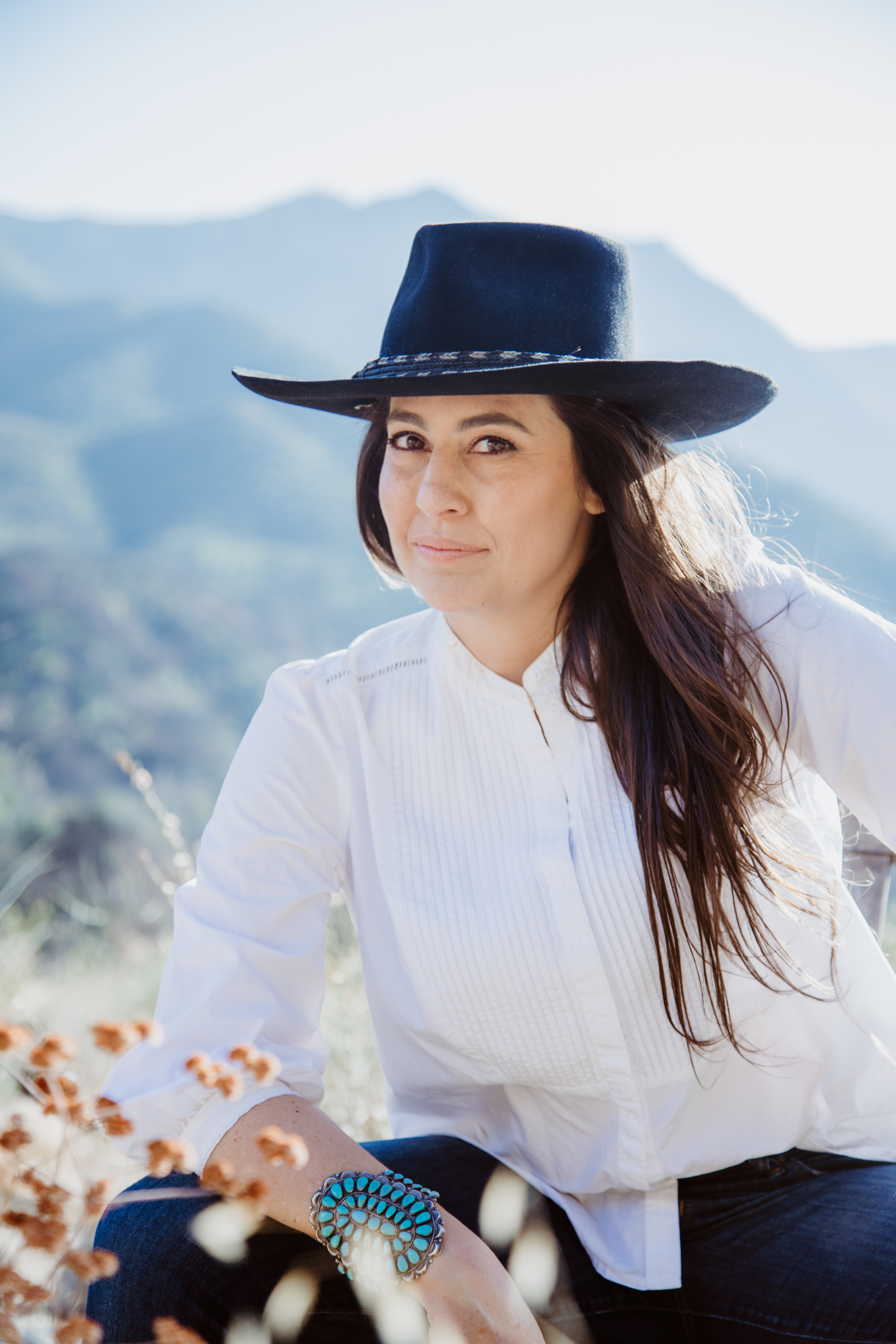As a part of my series about “Mental Health Champions” helping to normalize the focus on mental wellness, I had the pleasure to interview Alena Gerst is a mind/body focused psychotherapist and therapeutic yoga instructor, and the founder of Alena Gerst Therapy . As a former professional performing artist, Alena specializes in people living with disabilities and chronic conditions, and the creative and performing arts community. She is a certified LifeForce Yoga practitioner for mood management, and a dedicated yoga practitioner in the Iyengar method. Alena lives in New York City with her husband and two young children.
Thank you so much for joining us! Can you tell us the “backstory” about what brought you to this specific career path?
It’s funny that you say “backstory” because I kind of “backed” into mental health. I grew up loving to dance, and went to college intent on majoring in the performing arts. My parents implored me to do as much performing as I wanted, but please (please)major in something else. So I chose to major in psychology. I so enjoyed studying the behavioral sciences, and yes, I did tons of performing at my university and in my college town’s community in the southwest.
After I graduated with my psychology degree, I moved to NYC and launched my professional career in musical theater. During those 10 years, I engaged in psychotherapy and I also became interested in yoga during that time, but my main focus was performing.
About 8 years into my career, I came down with a serious long term illness. That experience rocked my world. I carefully and intentionally assembled my treatment team, which included western medicine, psychotherapy, acupuncture, body work, restorative yoga, and lots of reading on health and wellness. It took a full year to recover. I did return to the stage once I was well. But I was so moved by my own healing process that the healing arts became my passion, and eventually, my life’s work.
My 18 year old self pursuing a degree in psychology had no idea that I was laying the groundwork for a career in mental and emotional health and healing. But I could not have felt more clear in my decision to go back to school and focus on mental health and mind/body wellness.
According to Mental Health America’s report, over 44 million Americans have a mental health condition. Yet there’s still a stigma about mental illness. Can you share a few reasons you think this is so?
I can speak to the performing arts world, which is extraordinarily progressive in many ways. But the stigma of being unwell is still very much alive. Performers understand that the “show must go on,” and to “smile when they are low.” That mentality is applicable to the broader population as well. We are taught to casually ask someone how they’re doing, but anything less than a positive response often results in discomfort, and rejection. We still don’t really know how to talk about emotional struggles, even though we all experience them to some extent.

Can you tell our readers about how you are helping to de-stigmatize the focus on mental wellness?
If someone asks me how I’m doing, I will tell them. And I don’t plan to ask someone the same question unless I have some time to really hear their response. That doesn’t mean I’m being a therapist to everyone I see. My goal is to connect. If I’m going through something, it does not mean that I am weak, and I want to model that for others in my life too.
Was there a story behind why you decided to launch this initiative?
Given my background as a performer and my experience with a long term illness, I was naturally drawn to work with people in a physical and mental health capacity. I worked for several years in hospitals on inpatient and outpatient units integrating principles of yoga with evidence-based mental health interventions. I could see first hand through these modalities that people felt seen and heard.
One of the first things I was taught in my therapeutic yoga training was to ask someone who was struggling physically or emotionally not, “how are you?” But to ask, “How are you feeling?”
That question alone moved me to be more present with people around me. And one of my mentors taught me to grant people with whom I work, and myself, permission to feel whatever it is we feel. Too often people feel shame for their challenges. I strive to intervene with that shame, and let it be what it is. I’ll add that I am a “work-in-progress” with that goal too.
In your experience, what should a) individuals b) society, and c) the government do to better support people suffering from mental illness?
We need healthcare reform to be more responsive to mental healthcare. A lack of adequate insurance coverage is a barrier to mental healthcare for many people. I have been as frustrated as a consumer and a provider to the abysmal resources allotted for emotional wellness.
Mental and physical health care should be addressed in schools, and better supported in work places. While it’s great that students learn about the physical body and anatomy, it is also important to acknowledge how behaviors and thoughts influence the mind and the body.
As individuals, we can all work to bring more “realness” to our interactions. Social media can be a fun way to stay connected to a lot of people. But it can also negatively impact mental health when it seems like everyone has the “perfect” life. That can increase feelings of isolation and shame.
What are your 6 strategies you use to promote your own wellbeing and mental wellness? Can you please give a story or example for each?
- I go to bed early. That was a giant adjustment for me, and one that I was slow to embrace. I have always been a night owl, and even resisted going to bed earlier after I had kids, who are living alarm clocks with no days off. After the kids went to bed, that was my time to practice yoga, put the house back together, and watch my one TV show (a political news show that I really enjoy.)
- When I finally acknowledged the truth, that I needed more sleep, I had to start with adjusting my kids’ bedtime routines, which meant I had to adjust dinner time. I planned to listen to my show the next morning on podcast while I exercised. It was a major adjustment for all of us, but it has been an enormously positive move for my wellbeing.
- I eat a whole foods breakfast every day. Usually a smoothie with fruits, veggies, protein and fats, or a whole grain slice of toast with avocado and egg.
- I buy some whole raw veggies each week and some pre-cut and packaged raw veggies. Getting enough vegetables takes a little more effort. Once I decided to let someone else do some of the cutting for me, that has made a big difference.
- I use essential oils in my shower. I keep small bottles of my favorite scents handy. While I’m showering I drop a few drops of lavender, rosemary, or citrus oil and let the steam do its work. I love the smells, and it’s a nice way to check in with myself to see how I’m feeling, if I need a boost or to chill out.
- I bought an “Alexa.” Music is very important to me. I love all kinds of music. Once my kids became toddlers, managing CDs just became too much trouble. I went for a long time without music in my home, listening only when I was walking through the city with my itunes. Being able to verbally call out to “Alexa” to play pretty much whatever I want depending on my mood has been a game change to my wellbeing. My life has been enhanced by music again. I really missed it.
- I watch TV on the treadmill. If I want to watch a show, I made a rule that I had to be on the treadmill. Even if I’m tired, I’ll just walk. I have definitely extended workouts so I can keep watching something.

What are your favorite books, podcasts, or resources that inspire you to be a mental health champion?
The Artists Way by Julia Cameron has been a guiding light for me for over 20 years. I revisit it often, and recommend it to a lot of my clients.
Dr. Christiane Northrup’s work on women’s health also changed the course of my life. It shifted my entire thinking about my health. I always thought of physicians as the experts on my body and my health. Her writing and teachings have shown me that they can be my partners, but I am the team leader.
I also follow the advice of functional medical doctor, Frank Lipman. His books led me to clean up my nutrition, give up gluten, dairy, and be aware of the impact of allergens, and inflammatory substances.
Amy Weintraub is my mentor, teacher, and friend. I read her book Yoga for Depression long before I studied with her, and it was one of those books in which, when I was finished, was underlined, highlighted, and pages dog-eared on almost every page. Her compassion and wisdom has been a compass for me.
Drs. Richard Brown and Patricia Gerbarg are psychiatrists who teach the science of breath techniques to treat symptoms stemming from anxiety, depression, and trauma. Their books and recordings on coherent breathing have been one of my greatest tools, both personally and professionally, to help mitigate symptoms of mental illness.
I practice yoga in the Iyengar method. I was fortunate enough to have a wonderful teacher during my yoga teacher training, who eventually continued his training in as an Iyengar teacher, which was my formal introduction to Iyengar. I have since become enamored with the method. B.K.S. Iyengar’s books and teachings speak to profound truths of living in a human body and a spiritual world.
Thank you so much for these insights! This was so inspiring!


